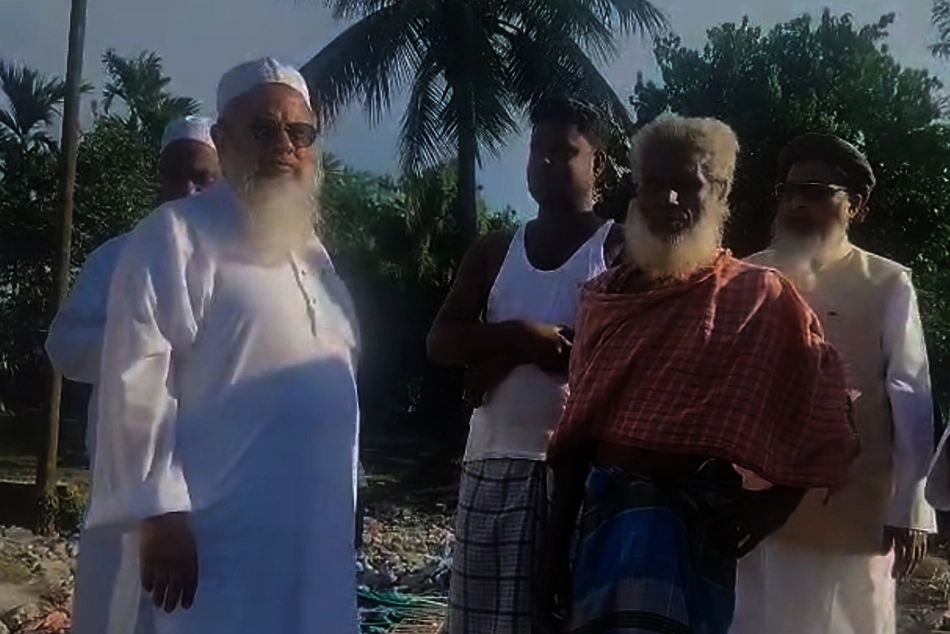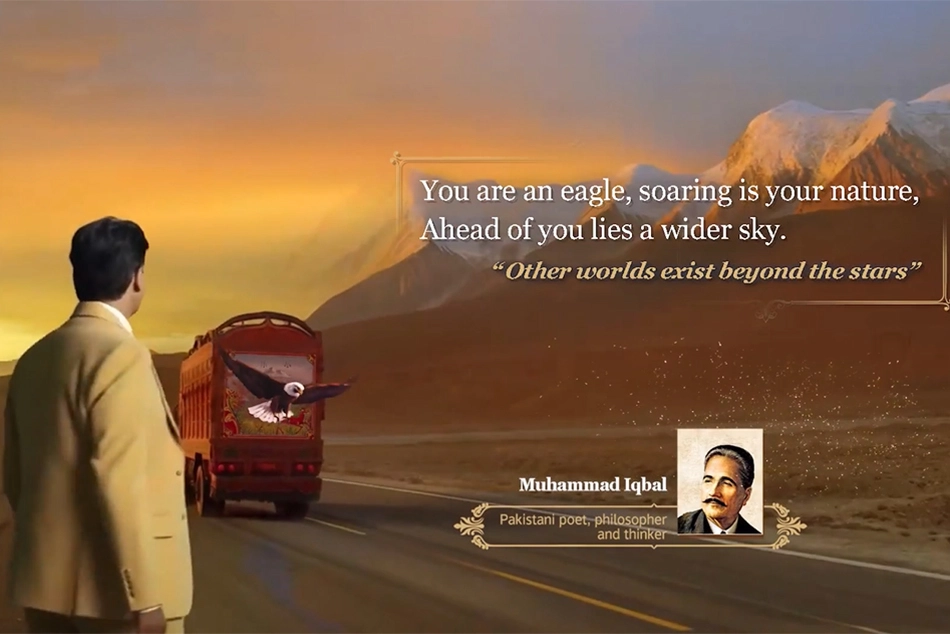
India-China Relation in a Multipolar World Order: A New Normal?
The recent Modi visit to China to attend the SCO summit exemplifies both parties' enthusiasm for strengthening bilateral ties and international collaboration.

[Modi's absence from the Chinese military parade has undoubtedly sent the opposite signals from these gestures, which in some ways indicated a desire for a diplomatic reset.]
The recent Modi visit to China to attend the SCO summit exemplifies both parties' enthusiasm for strengthening bilateral ties and international collaboration. The two “Asian giants” strategy also reflects significant shifts in the global landscape. It has been noted that in 2025, US foreign policy became more transactional, putting short-term benefits ahead of long-term alliances.
The relationship of United States with India has been significantly impacted by this shift in positioning. Unlike the Western press, which characterized this reconciliation as an"anti-web alliance," Beijing and New Delhi see it as consolidating their positions as autonomous powers in a growing multipolar world rather than aligning against Washington.It's true that the Shanghai Cooperation Organization (SCO) Summit in Tianjin, China, has become a venue for forgetting past disputes and rebuilding fresh ties.
However, there is historical significance to the relationship between China and India. Surprisingly, India was also the first country to officially recognize China in the United Nations. Even so, the bilateral relationship still faces difficulties, particularly concerning the border dispute, which worsened in the Galwanconflicts of 2020.These incidents brought bilateral relations to a near standstill. Military casualties were reported on both sides during the Galwan Valley fight. This marked the first fatalities along the border in 45 years, which altered the nature of bilateral relations.
In 2024, China and India agreed to fully disengage their militaries along their disputed border, ending years of stalled ties. Patrolling rights in the Demchok and Depsang Plains regions were reinstated by the 2024 India-China Border Patrol Agreement. In order to preserve the status quo and avoid unilateral changes, the agreement calls on both nations to remove their forces from certain areas of contention along the LAC and establish organized patrolling measures.
The fact that Modi's first visit to China in seven years coincided with a period of global upheaval and increased the event's significance. In addition to the Russia-Ukraine conflict and Israel's war in Gaza, US President Donald Trump's imposition of tariffs on US trading partners has disrupted worldwide trade. It was only logical that the SCO summit would be of interest, considering that it was hosted by China, the world's second-largest economy, and attended by India, Russia, and others.As we all know, the summit's leaders emphasized openness and diversity, as well as multilateral collaboration, while rejecting the concept of a "Cold War mentality, bloc confrontation, and bullying practices."
It would be fascinating to see if India is acting only for the sake of its "National interests" because the country has long taken pride in its ability to interact with people of all backgrounds and ideas. Its presence in BRICS, G-7, and other regional and international blocs is evident from this, or it is sending a signal to the West that it will not abandon its close connections with Russia and China and cease economic engagement with them.
Fundamental Question
The fundamental question, in my opinion,is whether Modi's foreign policy is trustworthy and reliable. In 2017, owing to American pressure, the Modi administration shut off oil shipments from Iran. It has also been heavily criticized by the West for purchasing Russian oil and military hardware from Moscow. Although India has not stopped trading with Russia, Moscow's share of India's defense hardware purchases has decreased, and New Delhi has begun diversifying its defense purchases by importing military hardware from Western countries such as the USA, France, and Israel.
India maintained a dual policy plan to satisfy the West while also maintaining ties with Russia and China for the sake of its "national interest," although foreign affairs are typically based on trust and faith in one another.If countries cannot trust one another, and there is always the risk of deception, there will always be inefficient and incorrect decision-making regarding foreign affairs. The India-China-Russia relationships are dependent on India's efforts to mend relations with Beijing. Along with the SCO, BRICS, and G7, all three nations are members of the RIC (Russia-India-China grouping), which was previously thought to be inactive due to China-India tensions. This Summit also signifies the prospective rebirth of the RIC, which has been inactive for a long time but has the potential to signify the beginning of a new Axis between Russia, India, and China.
Former Russian Prime Minister Yevgeny Primakov first proposed the RIC troika in the 1990s as a response to expanding Western hegemony, at a period when Russia was struggling to find its position on the global stage after the dissolution of the Union of Soviet Socialist Republics.
Since its institutionalization in the early 2000s, it has conducted about 20 consultations at the ministerial level. However, India was striving to strengthen its connections with the West, especially the US, and was opening its economy to the world, thereby avoided contact with RIC. China expresses interest in reviving the RIC, but, like India, it has maintained its distance from the RIC troika.Russia on the other hand, has long sought to revive the RIC and has held talks with China and India to this end. These states are all nuclear-powered as well.
Additionally, their combined military expenditures amount USD 549 billion, and they account for 35% of the world's energy consumption. Together they can be lead multipolar world order, although Experts believe the RIC still has time to reshape the new world order. Overall, however, the Tianjin summit undoubtedly gave the three nations a means of enhancing their ties and reentering in the new diplomatic arena.
Strong bilateral trade and investment ties between the two countries might help close the current trade deficit and improve economic cooperation for balanced trade relations. Despite certain political and military disagreements, both countries recognize economic interdependence, and the current trading relationship has a lot of room to grow.India will also host the BRICS 2026 summit, and the SCO and BRICS have a significant impact on contemporary politics. Because these are the only two blocks capable of countering NATO’s hegemony and limiting Western dominance, however, the crucial question is whether India can maintain these relations and survive antagonism with its Western allies.
Chinese Military Parade
The world order will certainly be impacted by India and China's increasing engagement. Reflecting the shifting dynamics of international relations in the twenty-first century, both countries highlighted their role in advancing a multipolar world and a multipolar Asia. However, I don't think anyone should be overly optimistic about the two countries' recent cooperation because it is important to remember that China did not invite in the world's largest military parade any Indian leader to celebrate the "victory day" at the SCO. Vladimir Putin, Kim Jong Un of North Korea, and even the leader of India's fiercest enemy and China's closest friend, Pakistan, were invited, but the Indian leadership was not present.
Modi's absence from the Chinese military parade has undoubtedly sent the opposite signals from these gestures, which in some ways indicated a desire for a diplomatic reset. The recalibration demonstrated India's readiness to strike a balance between strategic prudence and economic necessity, and it appeared to have been influenced in part by outside forces, particularly high U.S. tariffs. Following complete failures in every area of foreign policy, India appears to be the weakest link in the SCO and BRICS. Since India is still closely tied to the old world order, as evidenced by its membership in alliances like QUAD and its close ties to the USA, I believe that neither China nor Russia can rely on India or can view it as a trustworthy partner.
Also Read: SCO Summit 2025: From Expanded Role to RIC Revival
Nonetheless, India is still reliant on the old world order, which is entirely based on post-ColdWar politics that emphasized bloc politics and militarism, but with the resurgence of global south countries such as China, Russia, North Korea, and Iran, the old world order is on the verge of collapse, and multipolarity is bound to emerge. However, it remains to be seen if India will adapt to this changing geopolitical landscape. Nevertheless, I believe India and China's alliance has the potential to transform the political dynamics in the Global South. When these two Asian giants work together, they can lead the global south to prosperity and progress.
Their cooperation with Russia in organizations like BRICS, SCO, and RIC is particularly beneficial for the global south. These two of Asia's largest economies have the capacity to benefit the region; nevertheless, India should embrace and adjust to this new emergent context of multi-polarity. This could be one approach to unify the global south and break free from the slave mindset in order to encourage economic progress and overall prosperity.
India's position in this regard is highly critical and it would be quite intriguing to observe.
[The writer, Arooba Abbasi, has recently graduated with a MPhil degree in IR from the Muslim Youth University, Islamabad. She is a regular contributor in The Spokesman Daily and Stratheia in Pakistan. Views are personal.]
Follow ummid.com WhatsApp Channel for all the latest updates.
Select Language to Translate in Urdu, Hindi, Marathi or Arabic







